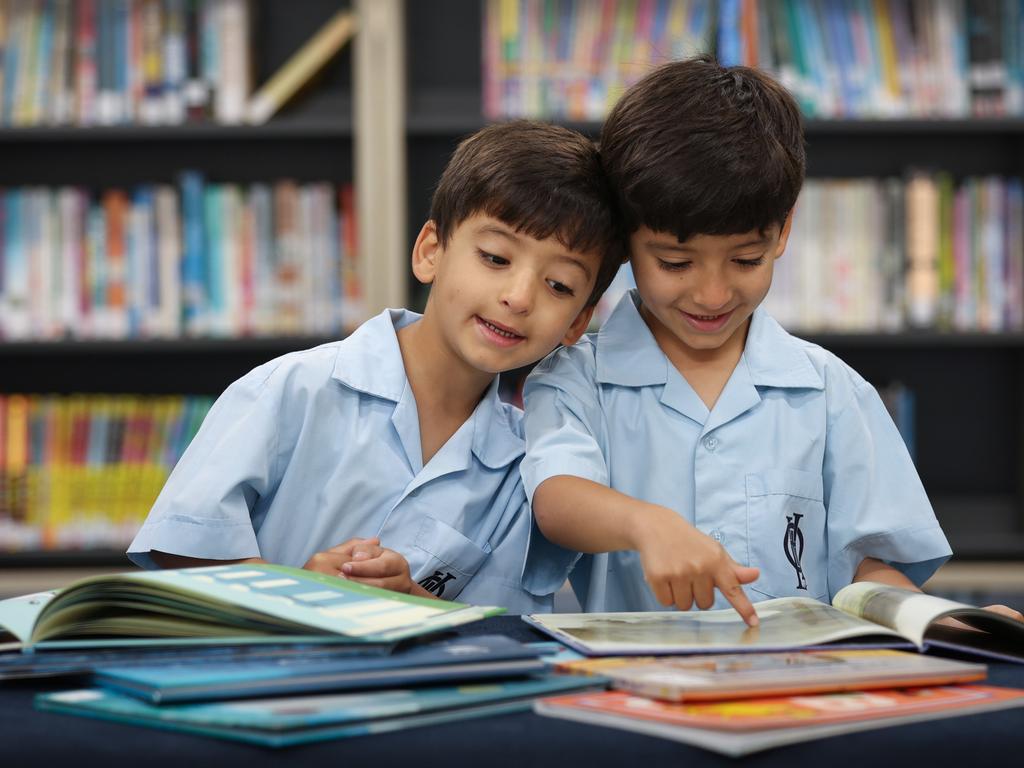Seven things to say to your kids at the start of school year, according to a psychologist
It can be a tricky time for kids during the first few weeks of the school year. But there are ways you can make it easier – especially by asking particular questions.
The start of a new school year is a time of transition, especially for those starting primary or high school.
These are some useful questions and comments to say to your child at the start of the school year to check they’re going OK.
When I was a kid I’d be excited AND nervous at the start of the year, I’m wondering how you’re feeling?
Communicate the idea that returning to school can be a time of mixed emotions. These types of open-ended statements allow the child to create space for their own experiences, and learn to label and understand their own emotional experience
School is different every day, you may learn new skills that feel tricky or make you feel unsure, but you can do hard things!
Telling your child “You’ll have a great day today!” may not map onto their experience. They are navigating social friendships and learning new skills every day. They are likely to feel challenged and not good enough from time to time. Validate their experience, and also encourage confidence that they can try their best when faced with a challenge. This growth mindset also encourages independence and trying new things.

How will your day be different to what we do at home?
Encourage a conversation about differences between home and school to help kids mentally prepare. At school there is a much firmer timetable, they line up, they eat at the same times everyday and they have different expectations of their behaviour. These can be big differences compared to holiday schedules, and talking about it can help mentally prepare for the transition.
What’s a glimmer you noticed today?
There is lots of talk in the community about “triggers”; meaning material that can be distressing. But in contrast, a glimmer is something that makes you feel uplifted, joy, pleasure, positivity. For example, a blooming flower, a butterfly, a smile from the bus driver. Asking about “glimmers” encourages us to notice more glimmers in the future which make us feel positive emotions, that we otherwise may not have even noticed in the busyness of life.
How did you treat yourself when something went wrong today? Would you treat a good friend that same way if they were in the situation?
Self-compassion is a power concept in psychology that encourages us to replace harsh self-criticism with a kinder, more respectful way of relating to ourselves. Encouraging children to be aware of how they treat themselves when they are upset is setting them on a path toward psychological resilience.
Did you help someone today?
Ask about the behaviours and choices you want your child to be making, rather than the behaviours and choices you don’t want to see “did you get in trouble today?”
First, we will walk to school, second, we will have a hug and say “I love you” at the gate, when I leave and third, I will pick you up after school.
A clear, concise script can help prepare kids for the biggest emotional transition of the day; drop-off. If your child struggles with drop off, they may be adjusting from the comfort of home to the uncertainty of the schoolyard. A clear script of drop-off steps will help the child know what to expect.
Dr Madeleine Fraser is a clinical psychologist and senior lecturer at ACU and Sarah Lewis has been a primary school educator for more than 14 years.




